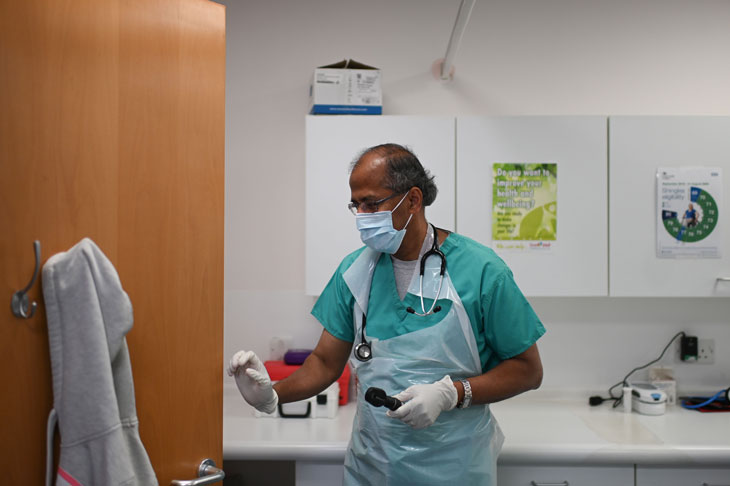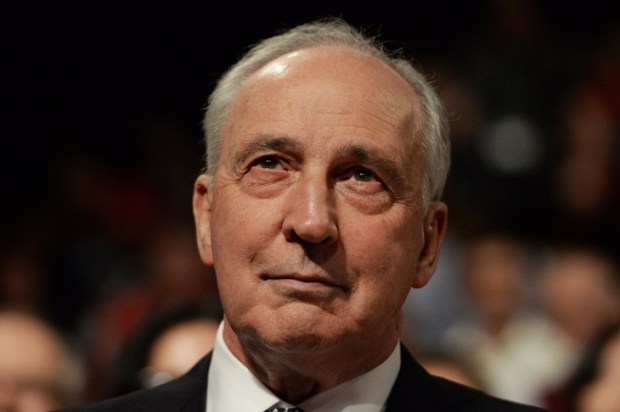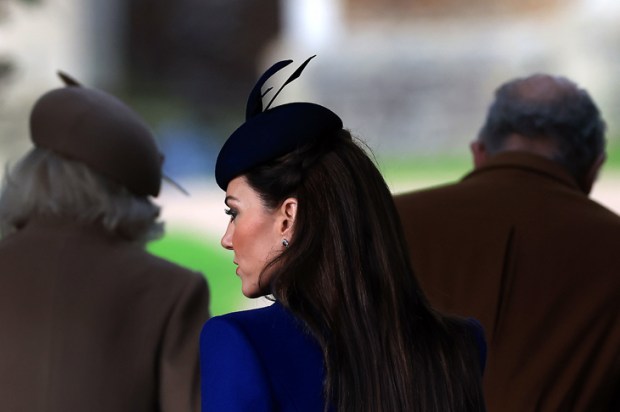The Fawlty Towers episode ’Don’t Mention the War’ has been banned by the BBC but a new version of the comedy is playing in Britain’s Covid wards called ‘Don’t Mention the Hydroxychloroquine (HCQ).’ The clowns entertaining the injured in Britain’s battle with the coronavirus are Dr Peter Horby and Dr Martin Landray, who are running Oxford University’s Recovery Trial and trying, with a conspicuous lack of success, to find a cure. Horby and Landray may not be in the same class as other comedic talents to emerge from Oxford such as Michael Palin, Dudley Moore and Rowan Atkinson, but they are still knocking ‘em dead in hospital aisles.
The Recovery trial has steadfastly ignored Professor Didier Raoult and a string of countries that have implemented his protocol, early use of HCQ with Azythromycin in safe doses, despite the fact that, after treating 3,737 patients — the single largest study in the world —Raoult has lost only 0.6 per cent, while Horby and Landray are presiding over carnage —a fatality rate of 25 per cent.
It takes serious effort to achieve such spectacularly bad results. How did Horby and Landray do it? They still haven’t published detailed results but seemingly by giving patients doses double the highest rate ever prescribed. Landray admitted to an investigative journalist at FranceSoir ‘these are quite high doses to… have a chance of killing the virus.’ Or killing the patient. The overdose rate in France is 25mg per kilo, so a woman of 50 kgs should not be given more than 1250 mg, around half the Recovery dose on the first day. Landray also admitted that he didn’t know the lethal dose of HCQ, but claimed it was ten times more than the dosage in the Recovery trial. Not according to Professor Christian Perronne, one of France’s leading experts in infectious diseases, who called the dose ‘super toxic’. When FranceSoir asked Landray how such a dosage could be justified he said it was based on ‘pharmacokinetic modelling’ and in line with other diseases treated with HCQ such as amoebic dysentery. Perronne is astounded that anyone could suggest using HCQ to treat amoebic dysentery. He says the only explanation for Landray’s blunder is that he confused HCQ with a similar sounding but totally different drug, hydroxyquinoline; the treatment for colonic amoebiasis. Of Landray he said, ‘This man, who calls himself a doctor, is incompetent and dangerous.’
When FranceSoir published this bombshell, leftist newspaper Liberation rushed to the defence of the Recovery trial, publishing a ‘CheckNews’ — a French fact-check — in which Horby claimed that FranceSoir had made a mistake reporting ‘amoebic dysentery’ when Landray had actually said ‘amoebic hepatic abscess (AHA)’, a pathology for which chloroquine had been used as treatment, at comparable doses in 1995. Unfortunately for Horby, FranceSoir released a recording of the interview in which Landray unmistakably referred twice to ‘amoebic dysentery’ in his clipped English accent. As FranceSoir told Liberation’s failed fact-checker, ‘From CheckNews to FakeNews there is only one step that you have visibly crossed.’ Contacted by Liberation to explain themselves, Horby took four days to respond, finally claiming that it was ‘a simple interview error’.Hilariously, Landray told journalists this week, ‘If you, your spouse, your mother gets admitted to hospital and is offered hydroxychloroquine, don’t take it.’ Well, certainly not in the doses that Recovery is prescribing.
Depressingly, Recovery is not the only trial delivering dangerously elevated doses of HCQ to Covid patients. On May 29, the Indian Council of Medical Research wrote to the WHO warning it that the HCQ dosage in the international Solidarity trial — which happens to be the same dosage as the Recovery trial — was four times greater than the dose being used in India where they were achieving much better results with their low dosage which is similar to that of Raoult.
How convenient that the WHO should use ‘super toxic’ and ineffective doses of HCQ which it hadn’t wanted to include in the Solidarity trial even though in vitro studies had demonstrated its efficacity and it has been championed by China, South Korea and many other countries around the world. Why? Because the WHO has been working for years with Gilead Sciences trying to get the pharmaceutical company’s lacklustre drug Remdesivir to show efficacy at curing first Ebola, with poor results, and now Covid-19 where it has been unable to demonstrate that the drug reduces mortality in any statistically significant way.
Nobody knows this better than Horby who has been working on RDV trials all this year but perhaps he is not as disappointed as his paymaster; as Landray revealed, unprompted, to FranceSoir, Gilead pays scientists 20 to 50 times more to conduct a clinical trial than Horby and Landray were paid to conduct the Recovery trial. Nice work if you can get it. In addition, Horby is the executive director of the International Severe Acute Respiratory and Emerging Infection Consortium which received 4.5 million pounds for research into vaccines and he established the Epidemic Research Group which is promised up to 14 million pounds from AstraZeneca and Zuckerberg/Chan of Facebook fame for the development of a Covid-19 vaccine which is being trialled by Oxford University. AstraZeneca, as it happens, is interested in merging with Gilead Sciences, which, if it went through, would create the biggest Big Pharma ever.
Unsurprisingly, toxic drug doses and muddled medications haven’t deterred the US Food and Drug Administration from announcing this week that it is removing the emergency use authorisation for HCQ because of the results of the Recovery trial. It also claims that HCQ reduces the antiviral effectiveness of RDV, although how it determined that is anyone’s guess, as it has provided no evidence either of RDV’s antiviral efficacy or the loss of it. Meanwhile, perhaps to distract from their incompetence, so embarrassingly exposed in the HCQ arm of the Recovery trial, Horby and Landray have announced that dexamethasone, a low-cost steroid which is also being tested has reduced the mortality rate of Covid-19 patients on ventilators from a scandalous 41 per cent to a still appalling 32 per cent. Raoult has pointed out that in his hospital, of the 0.6 per cent who die, a mere 16 per cent were in ICU but who is listening? The Recovery trial is a page one story in France, thanks to Raoult, Perronne and FranceSoir. In Britain, where almost 42,000 people have died of Covid, the only thing randomised, controlled trials have achieved, is to blind people to the evidence that 40,000 of those deaths could have been avoided. It’s no joke; except for those laughing all the way to the bank.
Got something to add? Join the discussion and comment below.
Get 10 issues for just $10
Subscribe to The Spectator Australia today for the next 10 magazine issues, plus full online access, for just $10.
You might disagree with half of it, but you’ll enjoy reading all of it. Try your first month for free, then just $2 a week for the remainder of your first year.














Comments
Don't miss out
Join the conversation with other Spectator Australia readers. Subscribe to leave a comment.
SUBSCRIBEAlready a subscriber? Log in